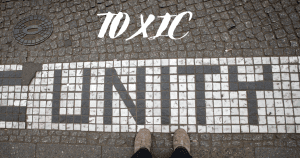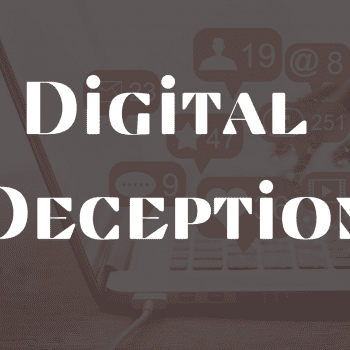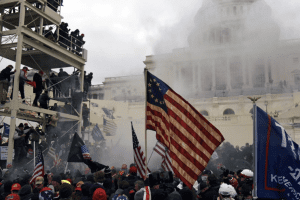
We are living in an era of unprecedented division- the left seems further left than ever, and the right seems more right than anytime in recent memory. Many people, in times like these, are drawn to harken back to the earliest principles of our democracy, words like those of the official motto of the United States: E pluribus unum, a latin phrase that translates “one out of many.” This same idea fills the pages of the New Testament as both Jesus and the Apostle Paul call for the Church, which is made up of many parts, to function as “one body.” (Romans 12:4) The idealistic vision embodied in all of these phrases is that we might create a nation of people whose diversity of perspectives, identities, and backgrounds are acknowledged and allowed to be expressed, while simultaneously moving together as a whole towards a common good.
This is a noble goal, indeed. One that is worth reminding ourselves of, one that we should constantly be seeking to reorient ourselves towards. In a world that is increasingly connected as ours is, where the broad diversity of humanity is accessible to nearly every human on the planet, we must continually be in a posture of learning, listening, and discovering the different experiences and perspectives of others, and organizing our collective energies to address the major problems that our species faces. But one of primary problems both the Church and the United States (among other democracies) have faced is that there must necessarily be a limit to unity. There is certainly a point where certain beliefs, opinions, or perspectives cross a line and make unity neither a safe nor reasonable goal.
For instance, many democratic nations are wrestling with the ideal of “free speech” and the limits that must be put on that ideal for the sake of the wellbeing of the whole. Many nations have decided that the right to free speech ends when the safety of another begins. By way of example, white supremacists may have a right to believe their damnable ideology, but they do not have a right to express it in the public square in a way that threatens or insights violence on others. In fact, at the point that any ideology of supremacy emerges among a people, unity is no longer possible nor healthy. People who believe any ideology that marginalizes or oppresses another group of people have themselves declared that true unity is impossible. In order to remain in union with such people would require others to subject themselves to oppression or harm, at which point unity is not only unreasonable, but immoral.
In times of great division, the desire to seek unity and peace is understandable, but it is often unreasonable. When oppressive beliefs, ideologies, and practices are promoted as normative, the only rational response is to demand reform or incite a revolution. This is, after all, the history of the United States. The early colonists demanded reform, were refused, and thus insights a revolution that changed the world. In our nation right now, we are seeing a revolution being born among black folx who refuse to allow calls for national “unity” to continue to be an excuse for their oppression. In many Christian churches, we are seeing LGBTQ+ individuals declaring we will no longer swallow the poisonous pill of toxic unity at the cost of their continued oppression, exclusion, and marginalization. Where reform is not possible, revolution is inevitable. Revolution isn’t the enemy of unity, but often rather the only path to create true unity founded in justice and equity for all.
In the divisive days ahead, we’re going to hear continued calls to make unity our highest value, and we would do well to heed those calls. But we must continue to insist that unity is only authentic when all people can truly be united in a common understanding of the fundamental dignity, value, and worthiness of all others- even those with whom they strongly disagree. Until then, reform and revolution are the only reasonable responses.











